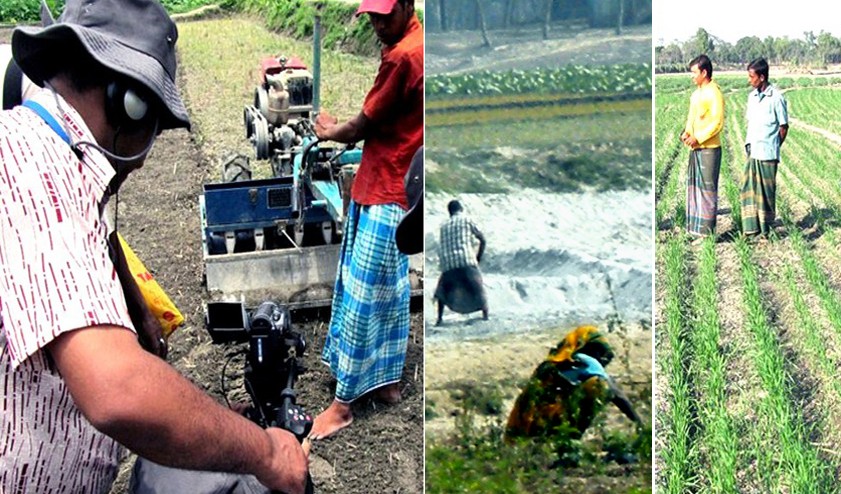News Flash

RANGPUR, April 26, 2025 (BSS) – Against the backdrop of climate change, experts have stressed on innovation and cultivation of more stress-tolerant and disease-resistant crops to further boost agricultural production to ensure food security of the country.
They said it is crucial to adapt to a changing climate through continuous innovation of time-befitting and need-based technologies to continue increasing crop production to this end.
Talking to BSS, Independent Award (food security) 2018 winner noted agricultural scientist Dr. MA Mazid stressed on continuous innovation and popularization of more stress-tolerant and disease-resistant crops among farmers.
Dr Mazid, also a former Chief Scientific Officer of Bangladesh Rice Research Institute (BRRI), said that agriculture, irrigation, navigation, ecosystems, biodiversity, environment and decreasing groundwater levels are being continuously affected by climate change.
"Developing stress-tolerant crop varieties has no alternatives to increase food production," he said.
As a result of overall climate change, seasonal rainfall, flooding, dry seasons, seed sowing or seedling planting periods, and harvest times have changed significantly, especially in the north-western regions.
"Climate degradation cannot be reduced overnight. Positive results from proposed and ongoing global efforts may start to improve the situation very slowly. But agricultural production must continue and increase," Dr Mazid added.
Md. Mamunur Rashid, PhD Fellow in the Department of Agricultural Extension (DAE) at Dinajpur Haji Mohammad Danesh University of Science and Technology, said the northern region has begun to experience unusual changes in climate, which has raised concerns over irrigation, agriculture, ecosystems and environment.
Rashid, also an environmental expert, said “The development and cultivation of stress-tolerant crops has become crucial to increase crop production amid floods, droughts, cold and heat, siltation and drying up of rivers, and declining groundwater levels."
Eminent environmental expert and professor at Begum Rokeya University, Dr. Tuhin Wadud said lowering of underground water levels and complete drying-up of many rivers and tributaries have further degraded the situation.
“We need to devote our best efforts to revitalize our extinct water resources for smooth irrigation and develop new technologies to increase cultivation of stress-tolerant crops in all seasons to achieve food security while increasing agricultural production,” he said.
"Unless adequate steps are taken to develop stress-tolerant crops to increase food production, the adverse effects of climate change could be worse than those already experienced by the agricultural sector," Rashid said.
Tuhin lauded the success already achieved by farmers in cultivating newly developed flood, drought and salinity tolerant rice, stress tolerant and disease resistant wheat, maize and other crop varieties to increase food production in the country.
Deputy Director of the Department of Agricultural Extension (DAE) for Rangpur region agriculturist Md. Afzal Hossain described the chronological background of climate change and its adverse effects on agriculture, environment, and other sectors.
“However, the government continues implementing programs to develop and cultivate more flood-, drought- and saline- tolerant and stress- tolerant and disease resistant cereal crop varieties to increase food output and feed the growing population,” he added.